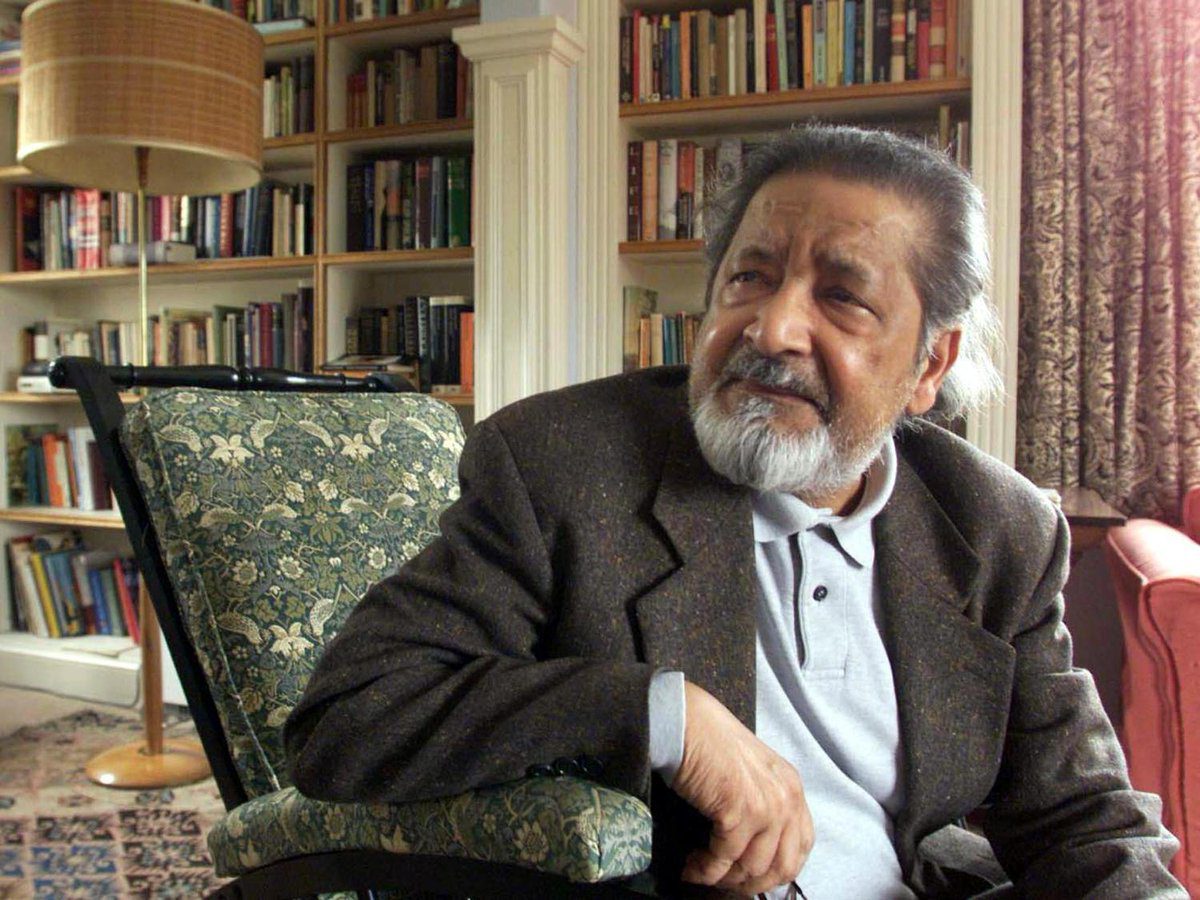Reading Time: 3 minutes
Irreverence is every writer’s passport and Naipaul made it a habit, a twisted virtue the world recognised with a Nobel, a prize which eluded him for a long time, maybe because he was not noble in his use of words. He couldn’t be blamed for the bile in him because those who escaped the “area of darkness” can seldom shake off the shadow. Indentured Indians in the Caribbean were transformed men. A report for Different Truths.
Sir Vidiadhar Surajprasad Naipaul should have been given the honour of being the first man sent to Outer Space, the spaceship programmed not to ever return. He was that kind of man – a surly exile, with a dark presence. A man who saw warts before he found beauty, if ever. The child of indentured labour, he laboured to cast a critical eye. To the point it came natural to him.
Naipaul’s life was cast on a ship that beached. India, his grandfather’s country of origin, was an ‘Area of darkness’, where people, if he had allowed his imagination to run, shat on minarets and domes. “They defecate on the hills; they defecate on the riverbanks; they defecate on the streets,” he wrote.
Irreverence is every writer’s passport and Naipaul made it a habit, a twisted virtue the world recognised with a Nobel, a prize which eluded him for a long time, maybe because he was not noble in his use of words. He couldn’t be blamed for the bile in him because those who escaped the “area of darkness” can seldom shake off the shadow.
Indentured Indians in the Caribbean were transformed men. Spellings of their Hindu sounding names changed – ‘Vidhya’ became ‘Vidia’ and ‘Naipal’ became ‘Naipaul’. Liberties they took because who was there to stop them? Trinidad, his dad’s space, was not Naipaul’s Eldorado. Trinidad was “that crazy resort”, and who can “write in a crazy place”.
The big mistake was the scholarship to Oxford at age 18. England gave his tortured imagination wing. It was colonialism’s headquarters and from there he went places – Africa, the subcontinent and the Americas. Photographs of Sir Vidia Naipaul give the impression of a large man but his “fastidious scorn” ensured he did not have a “large heart”. Naipaul liked to rub it in. He was the inveterate, self-confessed “exile”; using the word not as a “metaphor” but “speaking literally”.
Naipaul gave the impression he had sprung straight from the loins and did not take the uterus route. He wrote a book based on his father’s life – ‘A House for Mr. Biswas’, but chose to ignore his mother’s contribution to his birth. To him all “bindi” women were “empty heads”. He built a nest for a mistress and kept his British wife ensconced in a cocoon and, probably out of spite, when she was dying of cancer, about to make an escape, ensured she left bitter by letting her know that he frequented “prostitutes”.
Naipaul – a product of colonialism – could not see anything of note in the subcontinent though he did deign to step down from his perch to concede that India was “A wounded civilisation”. Given the toss, Indians wouldn’t grieve Naipaul’s death. The man was such a bloated ass. He left not one book behind to give the trodden heart a lift though he was sympathetic to the oppressed lot. The darkness was in his heart which he spread to every place he set foot on like expired butter pitted with black on a piece of burnt toast.
In that he was not a rarity, there’s a Naipaul in every galli and block – the chap who sits on the porch and sneers at every passerby, and who is not beyond casting a ‘channa’ at those he particularly loathed. The only difference being that Vidiadhar found “the door he wanted and knocked on it”. Most of the porch-perch-nuisance sit with their backs to the door and don’t get scholarships. Those who do get don’t have the words Naipaul had.
The door opened and Naipaul went to places he wouldn’t have wanted to be found dead in. He wrote about what was rotten about those places, what was wrong about the people who populated them. He wrote as if colonialism was history’s fault. A big mistake history thrust on itself and could have avoided. As if history wrote itself a colonial chapter! He authored long travel-mixed-in-fiction pieces while “In a free state” and his assessment of the world was that for a period post-colonialism, there were the “Guerrillas”.
Naipaul’s genius lay in his ability to compartmentalize. In life as in his books. He partitioned. He knocked not only on doors, he also went behind curtains – travelled to continents to produce “A bend in the river”, “A turn in the south” and “Among the believers”. After a while, he discovered non-fiction and thought it by far the superior genre. Naipaul’s big fortune was that people let him get away. To the last! Apparently, he passed away peacefully with his Pakistani wife by bedside and will likely be buried in one of his many tweed coats, finally exiled to Kingdom Come where he will, hopefully, get the whipping life didn’t give him!
Sushil Kutty
©IPA Service
Photo from the Internet














